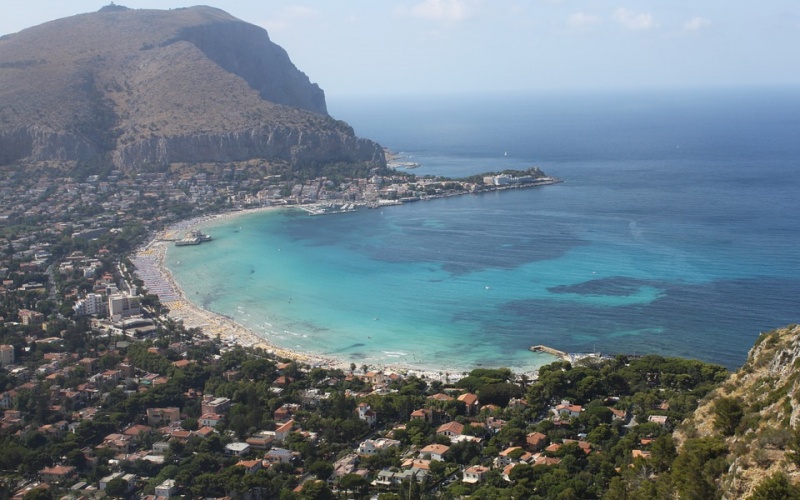Aldo Premoli, Co-Founder of Mediterraneo, Sicilia, Europa (MSE), illustrates the recent security and political shifts in Libya and how a new hierarchy in the management of oil resources in Libya has affected and will shape future attempts at governance.

Despite regional security and political challenges trade trends and investment policies involving the EU and southern Mediterranean countries have generally improved over the last decade.
While the EuroMed partnership architecture established in Barcelona in 1995 is far from having achieved all of its goals, over the past two decades economic relations in the region have significantly intensified.
Economic development and interconnectivity in the region were pursued through the signing of bilateral agreements between the European Union and major Middle East and North Africa (MENA) countries. Among these, Algeria, Egypt, Israel, Jordan, Lebanon, Morocco, Syria, Tunisia, Turkey, and Palestine have adhered to the EU-MED FTA (Euro-Mediterranean Free Trade Area). This has allowed these markets to access European Investment Bank funds.
Starting in 2010, trade between the Northern and Southern areas of the Mediterranean Sea has grown in volume and frequency, and the European Union has become the first commercial partner of the vast majority of Mediterranean-facing countries. The European Union currently represents 64% of trading activity in Tunisia, 56% in Morocco, 55% in Algeria, and 31% in Egypt.
While countries such as Morocco and Tunisia have intensified their trade relations with the European Union, Syria, Lebanon, Israel, and Palestine have not followed the trend due to conflict, political instability, and diplomatic tensions.
While North-South commercial integration has developed greatly, increasing South-South trade has continued to present significant challenges. As North-South routes registered a consistent rise in traffic that led to a total of 318 billion euro in 2015, while South-South trade only represented 10% of total 2015 exchanges in the region.
For several southern European economies, many weaker than their central and northern counterparts, the effect of the financial crisis was arguably worsened by that of these trade deals. These in fact increased competition in the agricultural sector, which led to a fall in prices and ulterior hardship for producers.
The effects of the “Arab Spring(s)”
Beyond the trade deals, the events that followed the revolution in Tunisia starting in 2011 also deserve a closer look. The European Union promptly began to reposition its economic policy considering the new political period the MENA region had just entered.
One of the key elements that had traditionally characterized the regional economies was the incidence of crony capitalist practices, with special relations built between entrepreneurs and public officials shaping economic affairs. The new approach developed by the EU sought to place more attention towards the formation and support of start-ups and small enterprises to foster bottom-up, sustainable growth in MENA economies. The EIB and the European Bank for Reconstruction and Development (EBRD) in particular were involved in such efforts.
Furthermore, the EU unveiled a series of incentives based on umbrella programs tied to the European Neigbourhood Instrument (ENI) set of policies, offering additional financial support to countries taking significant steps for the implementation of democratic processes and liberal economic policies. Despite this new approach, these economies continue to be significantly challenged by the political and security contexts that surround them.
Across MENA, different economies have undertaken different economic paths over recent years.
Morocco has begun pursuing policies that encourage foreign investment, and climbed up 50 spots in the World Bank’s Ease of Doing Business ranking over the past five years, just as other MENA markets continued to lose their standing.
Tunisia has remained stable in 74th position, although its recent political developments have granted it access to over 3.5 billion euros in additional financial support.
Egypt and Jordan have similarly remained in constant dialogue with international organizations with regards to major economic reform, fiscal, and financial reform programs, despite the former’s tumultuous political environment.
Following the fall in oil prices, Algeria announced its intention to ask for an international loan scheme. This had not happened in over a decade, and suggests the likelihood of upcoming negotiations on market reform and investment regulation in the country.
Overall, the Euro-Mediterranean region has recently witnessed the advent of new cross-border policies to incentivize trade. Despite this, political and security-related challenges continue to inhibit the effectiveness of these new initiatives. Moving forward, it will particularly important to monitor not just the impact of these policies on developing MENA economies, but on their northern shore counterparts as well.
By Aldo Premoli - Source of article Globalriskinsights
1 commentaire:
Enregistrer un commentaire